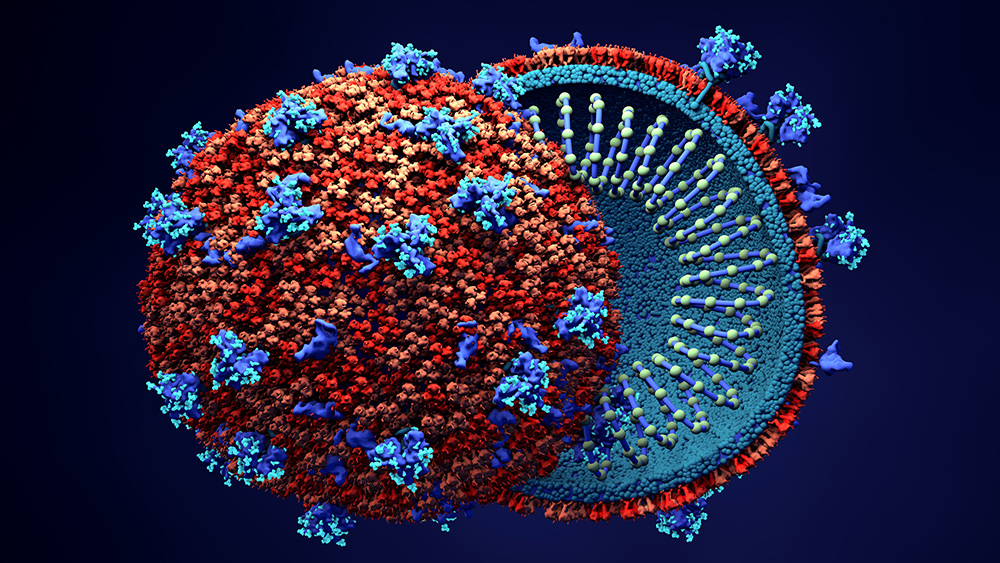Scientists explain how CBD helps address “isolation-induced aggression”
08/28/2020 / By Cassie B.

Research into the benefits of CBD has ramped up in recent years, and one area that could be particularly valuable is its effects on mental health. One recent study by Brazilian researchers found that it can help address isolation-induced aggression, which is something that could be incredibly useful in the quarantine era.
In the study, four groups of mice were given different doses of CBD, while a fifth group was not given any and served as a control. The mice were isolated in cages for 10 days prior to the experiment; an isolation of this long normally prompts them to attack newcomers. The idea was to see how they would react when a new “friend” was introduced in a test known as a “resident intruder test.”
They found that the mice in the fifth group (the placebo) attacked a mouse intruder just two minutes after entering their cage, and they made anywhere from 20 to 25 attacks. This is in keeping with their normal response to intruders.
The mice who were given the smallest dose of CBD, however, started attacking at around four minutes, which was double the time it took the control group to get hostile, and they attacked half as many times.
The group of mice who were the least aggressive were those who had been given 15 milligrams per kilo of body weight. They waited 11 minutes after the mouse intruded to attack, on average, and there were only an average of five attacks per cage.
Interestingly, the mice who were given the highest CBD doses, which were equivalent to 30 milligrams and 60 milligrams per kilo of body weight, were a bit more aggressive than those who got low doses, yet they were still less aggressive than the ones in the control group.
The scientists said that they expected to see this type of reduction in the effect of CBD in higher doses based on the results of past studies. They said that past experiments looking into the potential of CBD as an antidepressant found lower effects as doses rose following an initial gain. In fact, they said that if they had tested a dose of 120 milligrams per kilo on an additional group of mice in this study, they might have found their aggressiveness was not inhibited at all.
They then set out to determine how CBD calms the rodents, so they blocked the receptors in the mice’s brains that they believed were critical in this response, the 5-HT1A receptor and the CB1 receptor. Regardless of the dose they were given, the mice’s aggressiveness remained nearly the same as those who did not take any CBD. They still aren’t quite sure how these receptors affect aggressiveness, however.
Their findings were published in the journal Progress in Neuro-Psychopharmacology and Biological Psychiatry.
CBD can soothe anxiety and aggression
A mental health lecturer from the University of York, Ian Hamilton, told the Daily Mail: “You do see that CBD has a calming effect on people with mental health problems. It looks like it has potential for helping impulsive control and that’s seen in a lot of things like autism, depression and anxiety.”
He added that he would expect a similar effect to be seen in humans, although he cautioned that the doses of CBD given to the mice were a lot stronger than what people could achieve using the products that are currently being sold legally.
Although CBD is extracted from marijuana, it does not cause dependency or psychosis because it doesn’t contain THC.
Reducing aggression can be added to the very long list of benefits that science has already linked to CBD, such as pain relief, addressing psychosis, reducing blood pressure, and fighting seizures. Many people with anxiety find that its mellowing effect on the nervous system takes them out of that heightened “fight or flight” state and gives them some much-needed peace, and further studies are likely to uncover even more CBD benefits for mood and mental health.
Sources for this article include:
Tagged Under: aggression, Anxiety, cannabidiol, CBD, depression, Herbs, mental health, Mind, natural medicine, natural remedies, prevention, supplements
RECENT NEWS & ARTICLES
COPYRIGHT © 2017 DEPRESSIONSYMPTOMS.NEWS
All content posted on this site is protected under Free Speech. DepressionSymptoms.news is not responsible for content written by contributing authors. The information on this site is provided for educational and entertainment purposes only. It is not intended as a substitute for professional advice of any kind. DepressionSymptoms.news assumes no responsibility for the use or misuse of this material. All trademarks, registered trademarks and service marks mentioned on this site are the property of their respective owners.




















